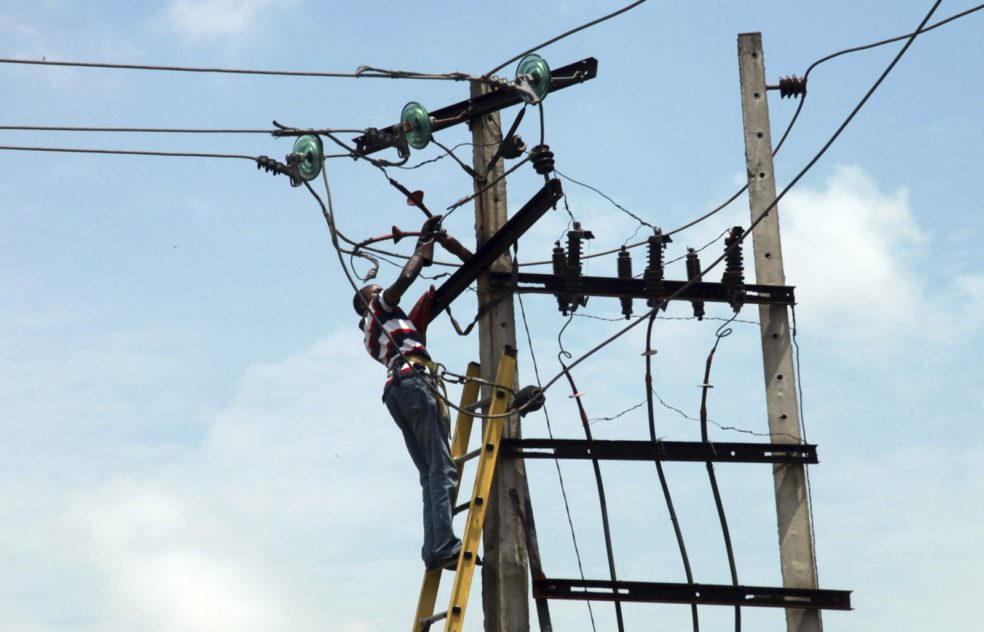The Federal Government has said it would adopt a holistic approach towards addressing the infrastructural decay and other challenges facing the electricity industry.
The Minister of Power, Works and Housing, Mr. Babatunde Fashola, stated that as part of these efforts to boost the electricity supply in the country, the Nigerian Bulk Electricity Trading Plc (NBET) and the Transmission Company of Nigeria (TCN) would receive a $473 million loan facility from the African Development Bank (AfDB).
He said that the support in loan agreement in the sum of $273 million had been set aside to provide partial risk guarantee for the off-taker (NBET), while the sum of $200 million would be channeled to TCN for its grid upgrade plans.
Fashola, who stated this during a meeting with a delegation from the International Monetary Fund (IMF) in Abuja, said that all arrangements for securing the funds have been concluded.
According to him, “we are expecting that at the end of the year, our generation capacity will be over 6,000 megawatts by the end of 2016; 10,000 megawatts in 2019 and 30,000 megawatts in 2030.”
Fashola said that as planned within the maxim of incremental, stable and uninterrupted power, the government had taken bold steps to harness the solar powered projects by signing off on the Power Purchase Agreements (PPAs), with 14 companies located in nine states and the Federal Capital Territory (FCT), which is expected to bring 1,150 megawatts of solar energy to the national grid.
The Minister of Power, Works and Housing, while also speaking on the Federal Government’s planned energy mix as contained in the road map document, said that the plan was to have robust mix that would increase the use of coal, hydro, solar, and more gas to power, bearing in mind that energy in large quantum would be required for individual uses, household access and indeed spread of electricity access across the vast country.
The Permanent Secretary, Ministry of Power, Mr. Louis Edozien, said that the power sector challenge now occasioned by ceaseless vandalism of gas infrastructure had necessitated the development plan, which identified stages of growth from 2017 to 2030 on the premise that vulnerability of gas supply would be radically addressed.
Edozien said that a lot of new renewable energy sources would soon come upstream, including the 40mw Gurara dam in Kaduna State, the 40 megawatts Kashimbilla dam in Taraba, 10 megawatts wind farm in Katsina and the 30 megawatts phase one of Kudendan dual fired plant in Kaduna State.
However, the Federal Government has reopened discussions with the preferred bidders for three of the 10 power plants built under the National Integrated Power Project (NIPP) and supervised by the Niger Delta Power Holding Company (NDPHC) Limited.
A source disclosed that the Federal Government’s intention in reopening the bids with a determination to close the transaction sustainably was to promote private sector investment into the power sector.
Information gathered indicated that when the deal on the three power plants pulled through, another two plants would follow successively until the entire power plants would be privatised.
The power plants and their installed capacities include Calabar in Cross River State, 634megawatts, Geregu in Kogi State (506.1 megawatts) and Omotosho plant in Ondo State (512.8 megawatts).
The NDPHC, established to fast-track the achievement of stable power supply, built 10 medium-sized thermal power plants but was able to successfully market seven to investors globally in 2014 during President Goodluck Jonathan led administration, but others were not billed for privatisation due to litigations.
Investors submitted bids for the seven power plants preferred bidders and reserved bidders emerged but the transactions were concluded before the end of Jonathan’s government.
In the previous privatisation, the Joint Transaction Board confirmed EMA Consortium as the preferred bidder for Calabar Generation Company with a bid price of $625 million, while Nebula Power Generation Consortium emerged the reserved bidder with an offer of $623.75 million.
For the Geregu Generation Company, Seoul Electric Power Limited was the preferred bidder with a bid of $690.2 million, and YellowStone Electric Limited the reserved bidder with $613.1 million offer while Omotosho Electric Power emerged the preferred bidder for Omotosho Generation Company with an offer of $659.9 million as against an offer of $645.15 million by the reserved bidder, ENL Consortium Limited.
Source: http://independentnig.com/

